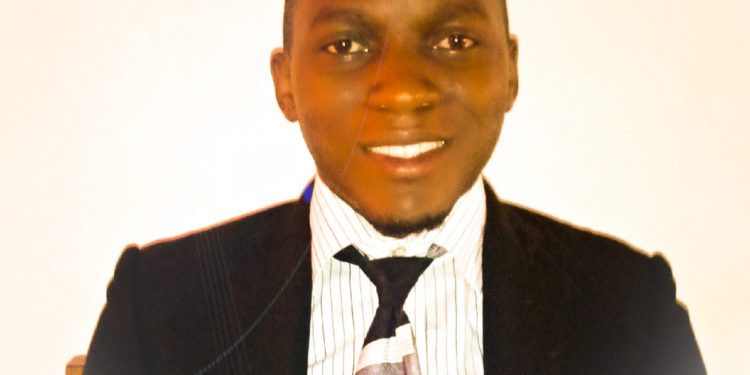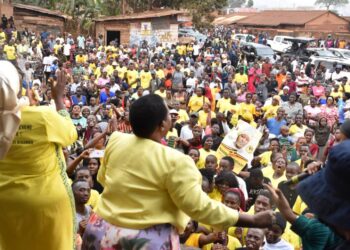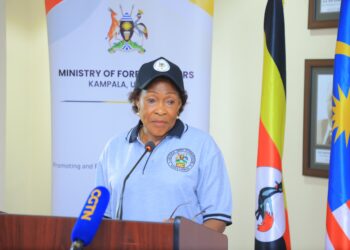Author: Pln. Lubadde Rahim
Physical Planning Trainee
As the world continues to live in the “Covid-Phobia cycle”, can we credibly appreciate nature? I believe that most of us here do not consider the daily misappropriations that humans deliberately play in disguise of attaining better lives and cities. When it’s all over, the world will never be the same, the urban system of living will change. This is not for you to accept, but to reference when that time comes. All 1st and 3rd world countries will formulate new urban paradigms that will prepare them for any future pandemic with vigorous sustainable urbanism being considered as a key aspect in urban planning and design.
I write to contribute to environmental management in Uganda and dedicate this piece to Planner Nyakwebara Charles of Praid consultants and Planner Lukyamuzi Matia of Makindye Ssabagabo M/C. It is not out of antagonism that nature musters back to jiggle and giggle at us but rather due to the smallest urban components relating to sustainable development that have not been given a heed by urban authorities yet for the first time in human life 55% of the world’s population lives in urban areas. Cities set different strategies to ensure that unbuilt areas develop fundamentally and sustainably but it is also significant to understand that many people around these cities care about the quality of life in their own context. Urban planners and environmental focal personales have to work extra harder for sustainable urbanism to thrive and to consider the human element for a proper understanding of how it affects the livability and nature of Ugandan towns. There is also a need to embrace innovative research to track their output and impact towards sustainability and livability in urban landscapes.
The challenges affecting urban life are both simple and complex to comprehend ranging from the influx of individuals and families who have continued to confront cities in a search for livelihood to the destruction of urban green fields to establish human settlements. This has resulted into the destruction of habitants and biodiversity.
The outbreak of the virus is an opportunity for us to change.
From old Urban dimensions, cities across the globe have been left crime ridden, car infested, polluted, unhealthy and overcrowded centers of humanity which have today seen them deserted as people vanish away from different catastrophes–Today’s talk is Covid-19. However, am not sure if urbanist will concede this assertion that ‘City dwellers feel that the quality of the environment that they have lived and worked in cannot hold their lives any longer which is why they have left cities back to their original rural roots’.
“Nature knows best…”, we shall never know when to get ready for a challenge, but let today be the start of something new. Today nature is “laughing” at us for the failures – though we can’t wait to ‘miss the mark’ any longer. It’s been enough enjoying now, let’s begin achieving through concentrating on green towns, social justice, reduced emissions, non-motorized transport systems, green energy and other sustainable hypotheses.
Ever since the state declared National emergency and many public realms were shut, Kampala looks more like a ghost town than a bustling conurbation with empty streets and fewer people outside due to the outbreak of covid-19. Life has taken a new form with schools, movements, bars, entertainment centers, restaurants, shopping mall and gatherings banned. Seeing people move from Kampala to Masaka, Fortportal, Kisoro, Jinja etc. is a prehistorical trend that coexisted during the missionary epoch. Let’s not just look.
How have we been relating to nature in our city? is there chance for improvement before things get out of our control?
There has not been motives for biodiversity in Kampala where urban greenery has been put down for establishment of buildings leading to an increase in flash floods, high levels of pollution from old cars and unplanned factories. Today Kampala lives at the mercy of nature; it’s not known whether it will evolve with changing times or the pandemic will erode its life and success. The widespread social distancing measures have produced some jarring effects on land, air and water and the whole sense of belonging coupled with the usual hum of public life have all perished.
We could destroy the Earth, but ‘he who laughs last, laughs best” nature has its own way of dealing; we have all bowed down, no fumes from factories, no noise pollution, no cars on roads, no trains on the rails and no ship on water. The whole place sounds quiet and soft. The only voices coming out are echoes and/or sirens of either police vans, ambulances and health practitioners—All other professionals look insignificant in this era. It is not about how much you studied, the energy you have, your wealth and status; today nature decided genuinely a lock down.
To see that the world has a total “unbearable–positive” decline in the amounts of emissions into air, land and water. It is, we say, a strange spectacle, and the strangest part of it is that all the while, humanity has been a basis for judgment and decision making irrespective of the worst and wildly neglect of all forces that fight for the wellness of our urban natural forms with limited funding, corruption and human resource.
Much as civilians roll unwillingly and reluctantly to vacate workplaces, move long distances back to the countryside, look at the country’s economy downsizing and witnessing the urban poor die of hunger in their squashed houses, the sub-sequential goodness of it all is that the environment is winning. Whenever we experienced a flood wash, landslides, decline in the water table, global warming and other naturally compelling catastrophes; they were triggers to remind us rethink on the direction of urban life that we had taken.
We are here today to observe how nature has wholesomely taken jurisdiction of its course to redirect and recommend its fortune. We cannot contradict the underlying facts that the world economic sphere has crashed and the ‘unseen environment is chanting in flowers.’ And by the time it’s all over, a lot will have transformed. The quality of air we breathe, the number of people on the street, different tree species will naturally have grown in different places, some parts of the city will be abandoned for urban forestry and primates will emanate back to the city rolling up and down town.
You have been talking about a strong and sustainable economy, how crucial is that in strengthening our relationship with the environment?
Here is a binary chance drawing nearer, nonetheless if we uncertainly move back to the city with the usual wide-ranging personality that lacks a natural context inbound, we are guaranteed to face perpetual clashes with the natural environment than ever before. A fortune to embrace all environmental projects that we have dreamt of before and to recreate our image as the pearl of Africa.
What are the priority areas to begin with?
Green Belts, Non-Motorized Transport (NMT), Bus Rapid Transit (BRT), Green energy plants etc. being the only traditions through which we can give back to the natural environment. A new mindset with insignificant human impacts on nature; sparing public open spaces, wetlands, forest reserves and reduction on machinery vibrations.
To the urban authorities, here is the spot-on time for you to regulate who comes back to the city against who remains in the metropolitan. Debates on factories, land uses, pedestrians, taxis, matatus, boda-bodas, mini-buses, private vehicles, the location of their respective stages and their areas of operationalization should have begun ‘yesterday’. These have been drivers of urban sprawl with related larger distances between residences, jobs and other frequent daily trip destinations and greater intervention in a series of key environmental processes. We hope to see green urban transport and road pricing systems, minimum parking requirements in new developments as introduced smartly into the city.
What are some of the issues that can be worked on before we let people back to the city?
As we prepare to flow in yet again, let there be remarkable long waves of urban reforms that will not only be positive to the natural environment but also promote aesthetics, mobility and health within the city. Let there be a gradual promotion in the daily urban challenges that urbanists have faced before; including proper waste management, drainage, noise and air pollution, reduction in vehicle and human traffic, and others. Let there be massive sensitization and call for participatory approaches towards the cause. Let it be a collective responsibility for all stakeholders to maintain a better city and finally let us use all our investments appropriately for a better Uganda since we have witnessed that no amounts of bullets, teargas, nuclear energy and machinery can overthrow nature if it decides. Let the depictions of this article be taken with more than a ‘grain of salt’ since natural features are laughing at man for believing that he owns the land. Nature laughs because it knows clearly that it owns us and therefore it knows best- we are only stewards of its creation.
Good-bye note:
Nature is part of sustainable urbanism and without it as the base through which all sectors perform their mandate, we shall keep fighting with it – it will always win.
NB: According to the United Nations – 2030 agenda for sustainable development- Transforming our world: “we are reminded to be determined to protect the planet from degradation including through sustainable consumption and production and sustainably managing its natural resources and taking urgent actions on climatic changes so that it can support the needs of the present and future generation.
NB: Despite the fact that nature is taking the precedent, Urban Planners, Engineers, Businessmen, Environmentalists, Surveyors and land managers are locked down in their posh houses that not even their cordial cars can move within the city. It has always cautioned us but it was so hard to comprehend. Nature in action.
“The writer is a Physical Planner”
Please respect the copy rights of this document- ***Non sponsored content***
Credit: Cheryl Dossey “The Earth Laughs in Flowers”
Email: lubadder@gmail.com
Facebook: Planning Ug
Do you have a story in your community or an opinion to share with us: Email us at editorial@watchdoguganda.com













